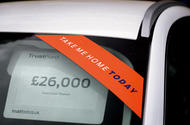Everything related to motoring is soaring in expense, so be prepared to tighten your seatbelts
Running a car has never been cheap, and this year it’s going to be even more expensive.
Motorists face a perfect storm of sharply rising fuel prices, increases in car insurance and company car tax, higher servicing prices, higher borrowing costs, rising new car prices and even the prospect of paying to park at work, all against the backdrop of rising inflation.
As we explain, there are things you can do to mitigate the effects, but in truth they’re small beer. We’re just going to have to get used to paying more for getting from A to B. Here’s where you’re going to feel the pain.
Company car tax
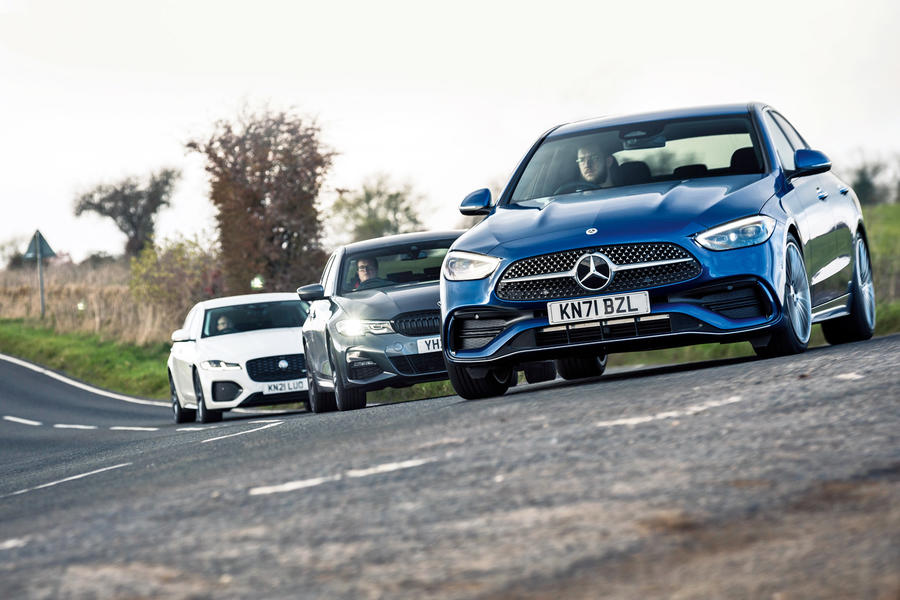
Going up 1%
If you run a company car, you will be familiar with benefit-in-kind (BIK) tax – the charge the chancellor imposes on you for having it for private as well as for business use. Every company car attracts a BIK rate based on its official CO2 emissions, its emissions standard and how it’s powered. The car’s P11D value (in effect its price plus options and delivery) is multiplied by this percentage, and that figure then multiplied by the user’s income tax band, the result being the amount of tax that will be taken from their salary.
The point is that for cars registered from 6 April 2020, BIK rates will rise by 1% from April 2022 (for cars other than electric ones registered before this date, the rates remain the same). It means that, for example, a 40% taxpayer running a Volkswagen Golf 1.5 eTSI 150 Active DSG will pay £107 more in tax (£3207 instead of £3100) each year.
Road tax
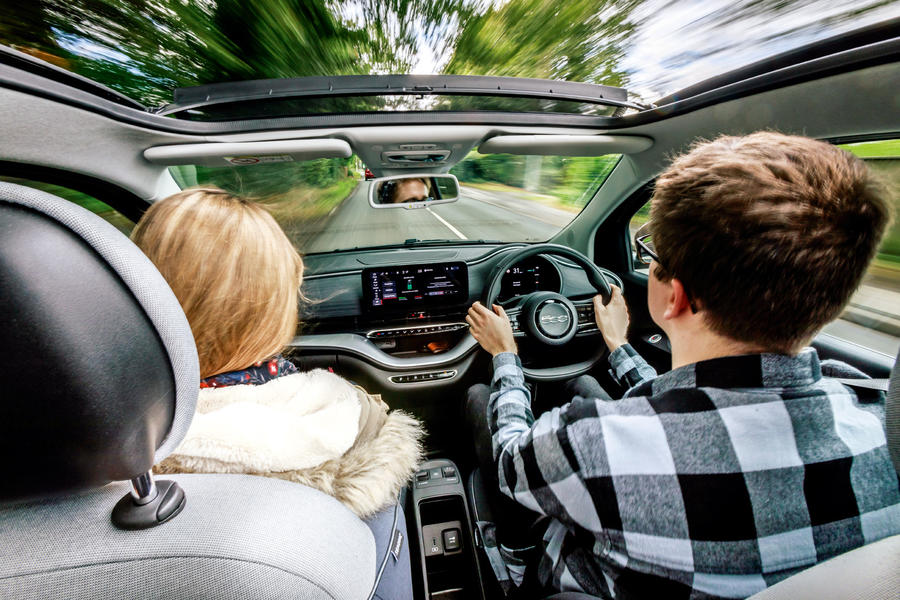
Standard rate going up by £10 and, in the first year, by up to £120
In a typical year, the government nets £7 billion from vehicle excise duty (widely known as road tax). That’s a lot of money, but it wants more. So from this April, the standard rate of road tax is rising by £10, while for the first year of a car’s registration, rises will range from £5 for some of the least-polluting cars to £120 for the worst offenders. On the plus side, electric cars will continue to attract no road tax and hybrid and alternative-fuel cars will go unchanged at £155.
Fuel
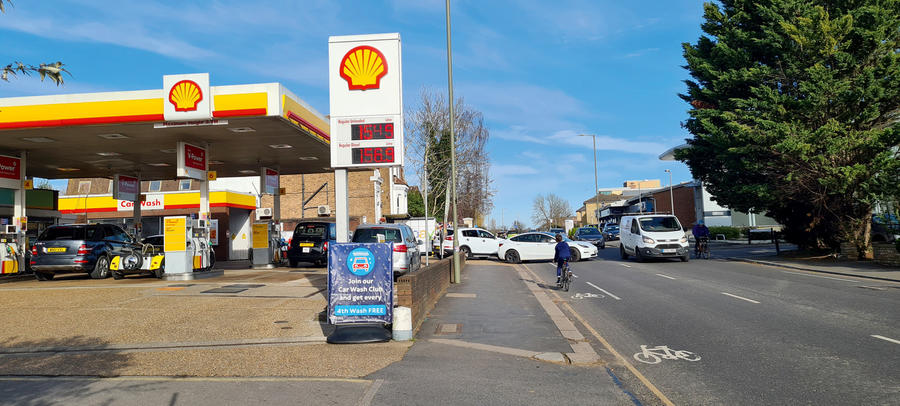
Petrol and diesel up 30% and 36% respectively in 12 months, EV home-charging energy up 54%
Higher fuel prices are the most obvious evidence of the rising cost of motoring. Government figures reveal that at the end of March, a litre of petrol cost £1.63, compared with £1.25 a year ago – an increase of 30%. Therefore, a car with a 55-litre petrol tank now costs £20.90 more to fill – from £68.75 in March 2021 to £89.65 today. And prices are expected to keep rising.
On 23 March this year, the chancellor stepped in to help motorists with a 5p per litre cut to fuel duty, to last until March 2023. The RAC welcomed the cut but said that it would only take prices back to where they had been the week before. Meanwhile, from this month, EVs will be pricier to charge at home when the energy price cap on certain standard variable rate deals rises by 54%. It means that an EV with a 60kWh battery that currently costs about £9 to charge will instead cost £14 – £5 more. Users on a fixed tariff risk paying as much as 80% more to charge their EVs. There are always public chargers – except they’re already at least twice as costly as charging at home, in part due to the fact that VAT is charged at 20%, rather than 5%. Worse still, in recent weeks, some energy providers have raised their tariffs by around 11%. Further rises are expected.
Car insurance
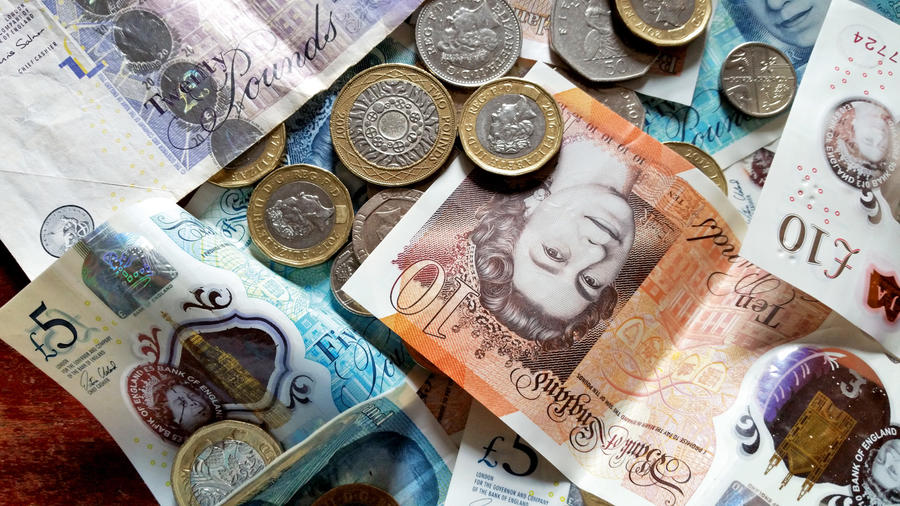
Premiums up an average of £11 and likely to keep rising
In 2021, the average price paid for comprehensive motor insurance was £434, but as the year drew to a close, this figure rose by £11 to £440. The Association of British Insurers says this is evidence that continued cost pressures on insurers could be starting to filter through to the cost of cover. Add an expected increase in claims as road traffic returns to pre-lockdown levels and higher premiums in 2022 look likely.
Used car prices
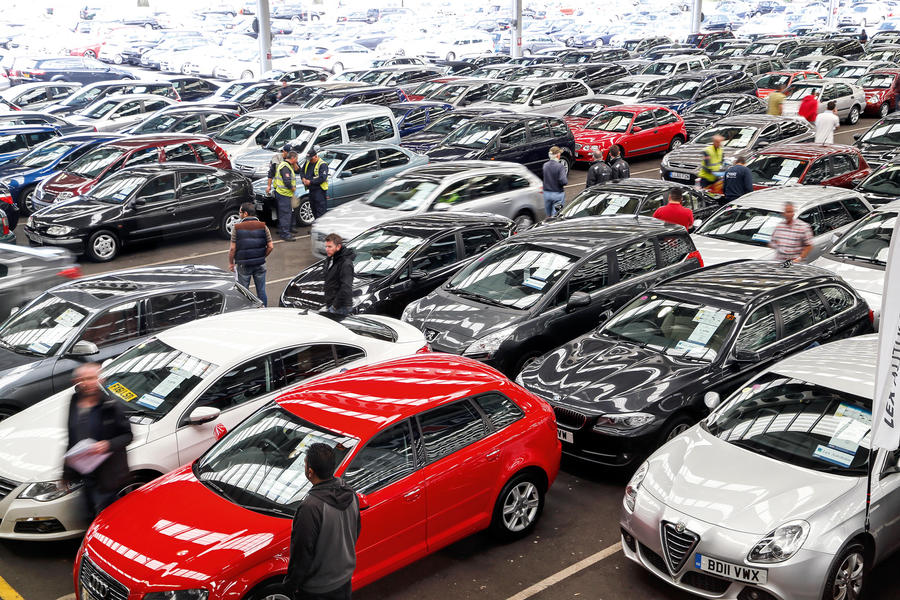
Average value up 27.6% in 12 months
It won’t have escaped your notice that used cars are more expensive. In fact, according to Cap HPI, values rose by almost 28% on average last year, while some went up by as much as 70%. In January, the Office for National Statistics said that, along with fuel, the rise in used car prices was one of the largest contributors to general inflation.
“Price increases have been seen across all ages and mileages,” says Chris Plumb, Cap HPI’s senior valuations editor. The table on p51 shows how much the top 10 value gainers have risen over the past 12 months. All are 2018/18-reg cars with 30,000 miles.
New car prices
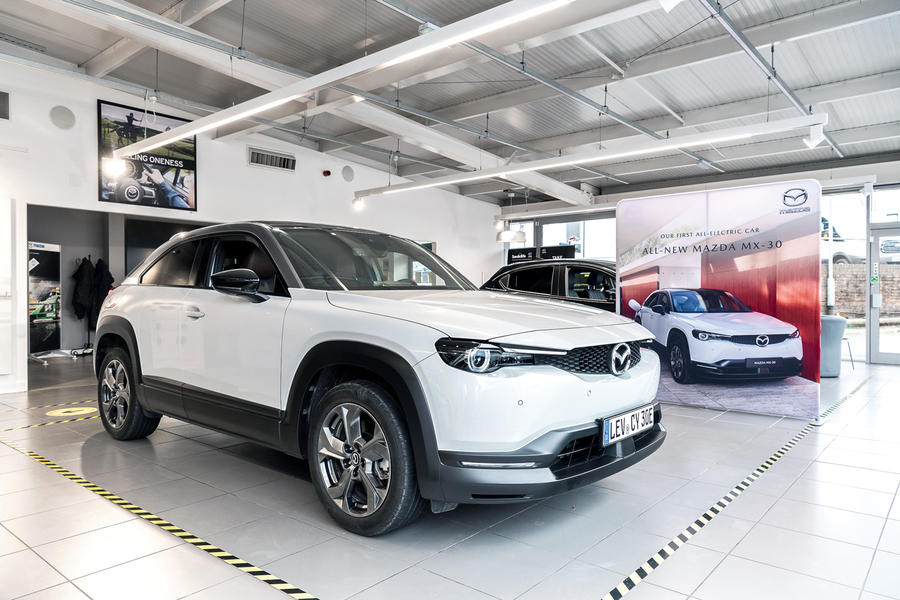
Prices for some popular models up around 25% in past three years
Strong demand and not enough cars to satisfy it sounds like a recipe for new car price inflation. The signs are already apparent, with one consumer website reporting price increases for some popular models, such as the Nissan Qashqai and Vauxhall Astra, of around 25% over the past three years.
General inflation will only fuel the trend. Although the UK has enjoyed relatively low inflation of cumulatively 26% over the past decade, according to Jay Nagley, managing director of automotive consultancy Redspy, the prices of a basket of popular models adjusted for power and specification have risen 40% over the same period. As we enter a period of high inflation, we may have to get used to much more expensive new cars.
Interest rates
Up to 0.75% and could rise further
In January, inflation hit 5.5%. If you think that’s bad, the Bank of England predicts it will rise to 8% in April when higher household energy bills kick in. This is rather more than its inflation target of 2%. To rein it in, the bank raised its official interest rate from 0.50% to 0.75% in March. And as this was written, it was speculating that further rate rises might be necessary if inflation continues to surge ahead, as is likely. Should the interest rate rise, borrowing money for that new or used car you’ve promised yourself will get more expensive.
Servicing and tyres
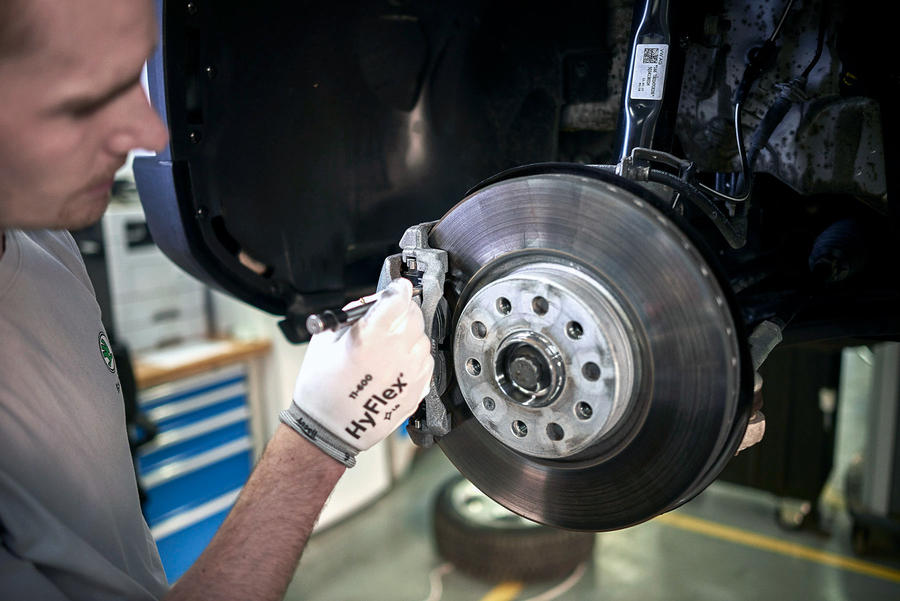
Prices to rise by up to 8% and 10% respectively
Owing to rising energy prices, labour costs and material values, car servicing and tyres are likely to become more expensive during the year.
“There are huge cost pressures coming from a variety of directions,” says Andy Lane, marketing director at Kwik Fit. “The increased oil price is hitting all businesses, but it places an extra burden on an organisation like ours, which has to move products around a national network. We’re expecting to see a 6-10% increase in the price of tyres from manufacturers by the end of the year and around a 5-8% increase in the costs of the elements making up servicing packages.”
Driving tests and IVA test
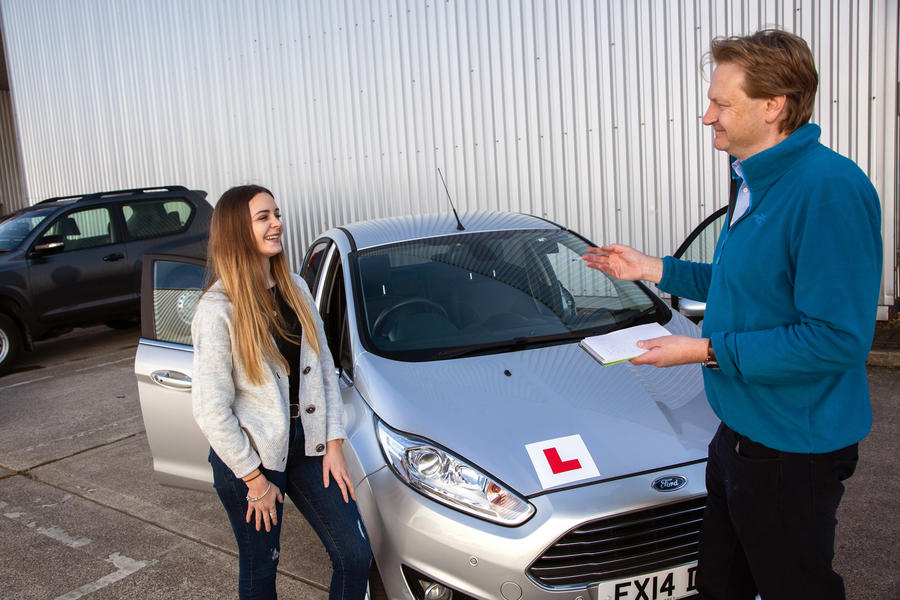
Fees rising by 1.5%
Later this year, the DVSA is increasing the cost of driving tests, both theory and practical, and vehicle inspections, although not the MOT test, by 1.5%. It means the driving test will go up from £62, which it has been since 2009, to – drum roll – £62.90. The theory test currently costs £23 but following the rise will cost £23.40. Meanwhile, the cost of Individual Vehicle Approval inspection is rising from £450 to £456.80.
Company car parking levies
Employees likely to shoulder half the cost
As pressures on their budgets increase, more councils are considering imposing workplace parking levies. Nottingham already does, charging companies and organisations £428 per space, more than half of which is passed on to staff, and the charge is due to rise to £458 from April. Cambridge and Hounslow are considering imposing higher charges of £1000 per space, while other councils exploring such a levy include Bath, Birmingham and Oxford.
How to beat the price rises
Price rises are inevitably coming, then, but with a little imagination, you might be able to lessen the blows. Here are our top tips.
Buy an EV in order to pay no road tax or fuel duty and, if you can, charge it for free at work
Shop around for car insurance but be sure the cover meets your needs.
Check or if necessary spring clean your credit score and shop around for the lowest interest rate.
If workplace parking levies are imposed in your area, park down the road rather than at the office.
Learn to service your car or use a comparison site to find the cheapest garage.
Use a fuel price comparison website (ignoring motorway service stations, prices vary between 3-5p per litre) and drive more economically.
If it makes financial sense to switch energy supplier and your home is totally electric, consider going with one that offers an Economy 7 tariff for cheaper night-time EV charging.
Buy that new car now.
The good news
Cars have never been better equipped, better built or more fun to drive, so hang the expense, buy the one of your dreams and find a good road.
Source: Autocar
